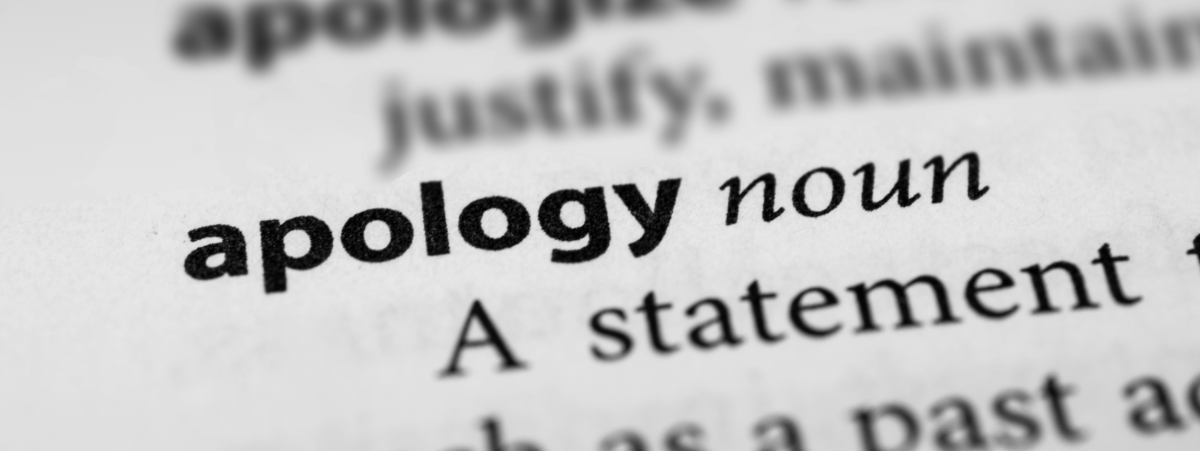The power of an apology: how a simple ‘Sorry’ can impact personal injury cases

Sometimes all you really want is an apology. For someone to take responsibility for their part in what went wrong. For many injured people the impact of one statement has more meaning than any amount of compensation.
While money can help make up for a personal injury, we often see that someone simply apologising can play an important role.
We often hear, “If they’d just done right by me, I might never have made a claim” - especially when it comes to accidents at work.
These aren’t strangers. They are your colleagues, managers, and even friends. There’s a sense of loyalty. And when you are injured that loyalty can quickly turn to feelings of betrayal.
It’s not just the physical pain that hurts. It’s the disappointment. The sense that no one has acknowledged your suffering or admitted fault. They don’t even ask how you are – instead they demand you come back to work as soon as possible.
An apology is different from simply saying ‘this is my fault’.
It’s about recognising the effect that it has on the person who was hurt – and their families. In many cases if employers had done the right thing early on, there wouldn’t even be a need for a claim.
One client had been injured at work due to unsafe equipment that their employer had been warned about previously. No one checked in on them afterwards, and no one said sorry. As they put it:
"They never apologised for what happened and it was clear they didn’t care that I was injured so I decided to make a claim."
This type of behaviour from employers is sadly not uncommon and can quite frankly, sting. When you’ve worked all those years for someone, time away from your family, working extra hours to get work done - and they don’t have the human decency to treat you like an individual, well, it drives employees to seek recognition by way of a legal claim.
It was not the money that drove this employee to take action, but the feeling that they didn’t matter. The decision to make a claim was about finding acknowledgement when words of compassion never came.
Where they don’t get that response, then the only way they can get validation and justice essentially is with compensation.
They want their experience to be validated. They want recognition that their injury directly changed their life due to someone else’s negligence. They want accountability. Whether it’s an apology or an admission of responsibility.
While each case is unique, the underlying need for recognition is common.
Another example comes from a father in Fife who suffered a career-ending back injury after an avoidable workplace incident. His case was not about financial gain - it was about standing up for what was right. As he put it:
"It wasn’t about the money for me, it was about holding my employer accountable."
For him the injury brought not only physical pain but the loss of his livelihood. What mattered most was ensuring his employer accepted the seriousness of what had happened.
A court can say someone is at fault, but that doesn’t mean that the defender will agree, admit to it, or apologise in retrospect. It still rings a bit hollow. At the end of the day, a compensation claim can only get someone money, not an apology. We cannot force someone to say sorry. Recognising the value of accountability is important to clients.
But it can also make sure it doesn’t happen to anyone else by an employer learning lessons from the past and putting better safeguards in place.
Not all apologies are equal and can take different forms: some are verbal and informal, while others are written or delivered in a formal process.
In Scotland, the Apologies (Scotland) Act 2016 provides additional reassurance for both victims and employers. The Act ensures that a genuine apology made in civil proceedings cannot normally be used as evidence of liability.
These examples underline a truth that is often overlooked: a genuine apology can have a far greater impact on a victim than money.

Catriona Headley, Partner